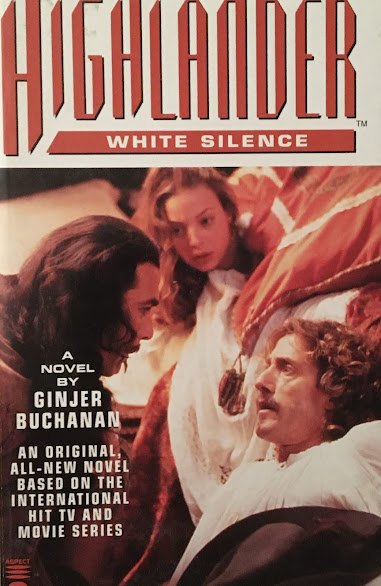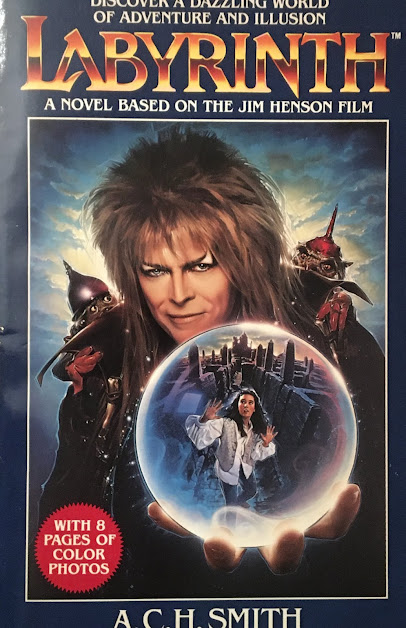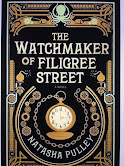I Read That Movie!
A blog about books should at some point recognize the inevitable truth that books often become fodder for mass media. Once upon a time, they were adapted into plays, musicals, and radio dramas. As time passed, films and TV shows were added to the mix. Now, it’s not so far-fetched that one could become a game or an interactive experience or even an escape room.
Some of these are more successful than others.
What do I mean by successful? I don’t measure the success of an adaptation by how much money it made. It must tell a cohesive story and maintains at least enough of the original that you can see where the inspiration comes from.

What about books adapted or reimagined into other books? Sure! Many classics are the inspiration for new stories. Sarah J. Maas has had a lot of success with her book series A Court of Thorns and Roses, which is based on the classic fairy tale Beauty and the Beast. You won’t see talking clocks and candle sticks here, but the basic plot elements are recognizable.
There’s also Gerladine Brooks’s captivating novel March published in 2005. It tells the tale of Louisa May Alcott’s Little Women from the perspective of the one character who isn’t in the original novel all that much, Mr. March, the girls’ father.
James Joyce’s Ulysses is based on Homer’s Odyssey.
Madame Bovary by Gustave Flaubert is a reimagined Don Quixote. A Thousand Acres is Jane Smiley’s version of Shakespeare’s King Lear, and China Miéville’s Railsea is a parody of Herman Melville’s Moby-Dick with a giant mole in place of the whale.
That last one begs the question: Can a film or TV show (or musical, play, etc.) stray from the original and still claim a connection?
That depends.
In the case of Miéville’s Railsea, I’d say yes, but other attempts have been disappointing.
There’s the case of Stephen King’s “The Lawnmower Man”, a short story that in no way resembles the final motion picture that was released decades after publication. Turns out the studio wanted the name. They kept that and threw away the rest of the pages. That debacle is in no way related to Stephen King’s story and does not have a right to claim relation to it.
There’s also a far more recent failure. Percy Jackson and the Olympians was intended to be a five film series, but the failure of the execs to get author Rick Riordan involved, and his disdain for the films was enough to sink any future adaptations. They broke a cardinal rule: never alienate the author if you want to adapt the book. Rick Riordan had the last laugh. He is now involved with Disney+ to bring Percy Jackson to the streaming service by 2022.
Was it a successful adaptation? I say yes. Others say no.
Adaptations can go the other way. Sometimes referred to as media tie-ins or TV/movie tie-ins, it has happened that the film or TV show was first, and then books followed. Many major motion pictures have a novelization and even a “junior novelization” aimed at middle-school kids.
There have even been several children’s picture books based on old films and TV shows. Back to the Future, Home Alone, E.T., Doctor Who, and The X-Files have all appeared on the kid’s department bookshelves at your local bookstore.
Arrow, The Flash, Elementary, Doctor Who, Firefly, Warehouse 13, Eureka, Alien Nation, Stargate SG-1, Star Wars, Indiana Jones, Halloween, Close Encounters of the Third Kind, and even Happy Days, The Partridge Family, Charmed, Leverage, The Librarians, Adam-12, Smallville, The Six Million Dollar Man, Highlander, Battlestar Galactica, Labyrinth, Dark Shadows, The Waltons, Melrose Place, and Full House have all had books—either one or a series—based on the them.
These types of novels have a bad reputation, which is undeserved. I can’t say they’re all beautifully written, but a lot of them are. You find out things that aren’t in the movie or may be only a suggestion. It’s a chance for the author to expand on what can only be hinted in the film or TV show. A fleeting look, a word said in passing might get it’s own little spotlight in a novelization.
SPOLIER—but since it’s for a 39 year old movie, I don’t feel so bad.
For instance, in the novelization of Star Trek II: The Wrath of Khan, I knew that Scotty’s nephew was on the Enterprise long before the Director’s Cut of the film was released.
These tie-ins are a world of their own—or rather, a borrowed world. If done right, they give the readers a chance to revisit a location, characters, and a premise they already love with the feel of the show.
If done wrong, the readers may wonder why in the world an author who’s never seen the show would be hired to write a book based on characters and situations they just don’t understand.
One of my favorite adaptations of all time are the Star Wars Radio Dramas. Each of the original three films, A New Hope, The Empire Strikes Back, and Return of the Jedi were adapted into radio plays the ‘80s. Listening to them is like getting to go back to the original film, and yet so much better. There’s so much additional material in these plays that the running time far exceeds the original length of the films. Yet every minute is captivating. With the sound effects, the music, and even some of the original cast, the plays can make a true Star Wars fan giddy.
Why do I mention a radio drama adapted from a film? What has that got to do with books? The scripts were released in book format for the true Star Wars fan to snatch up, memorize, and read along as they listen to the drama. That’s entertainment!































Comments
Post a Comment